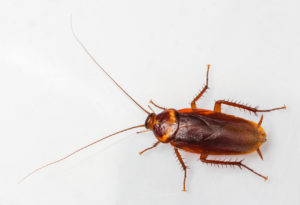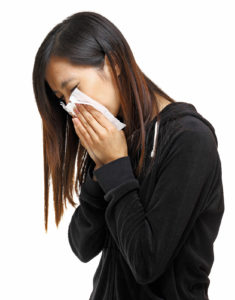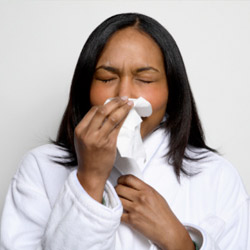Black & Kletz Allergy has an allergist northern VA resident’s trust on its staff for more than 30 years. The allergist northern VA of Black & Kletz Allergy has on its staff is board certified in allergy and clinical immunology with decades of experience in treating both allergic and immunological disorders. Some of the conditions treated and managed by the allergist northern VA inhabitants believe in are seasonal and year-round respiratory allergies caused by environmental and aeroallergens, food allergies, medication allergies, skin allergies, insect venom allergies, chemical sensitivities, asthma, eczema, and immunodeficiencies.
Aeroallergen or environmental allergen sensitivity leads to a condition commonly known as hay fever, which is technically called allergic rhinitis which can be seasonal or perennial in nature. Our allergist northern VA residents admire will identify the specific allergens that each patient is sensitized to by performing relevant allergy tests. The results will enable our allergist to recommend relevant environmental control measures which would minimize one’s exposure to the triggering agents and thus lessen the suffering of the affected individuals. Some of the mostly indoor allergens playing a role in causing hay fever symptoms may include dust mites, mold spores, animal dander, and cockroaches. Outdoor allergens may include pollens from trees, grasses, and weeds. Note that molds are both indoor and outdoor allergens.
Black & Kletz Allergy’s allergist northern VA resident’s trust is trained in performing and interpreting allergy skin and blood tests to accurately identify the triggers in an individual patient and diagnose the conditions based on a comprehensive history and physical examination complemented by allergy test results. Our allergist northern VA inhabitant’s respect is also experienced in providing the necessary education to patients and the most appropriate ways of managing their condition. The management options considered and offered to the patient by our allergist northern VA appreciate may include various medications as well as allergy desensitization. Medications may help to relieve allergy symptoms and make the patient more comfortable. Two examples of medications used in the treatment of allergies include antihistamines in order to help relieve itching, sneezing, runny nose, and watery eyes, as well as nasal sprays which are used to help control nasal congestion, runny nose, and post nasal drip.
It should be noted that in general, medications only mask the symptoms of allergies and do not treat the underlying cause of allergic disorder. Our allergist northern VA inhabitant’s trust has special expertise in treatment modalities called immune therapies (i.e., immunotherapy) which alter the underlying mechanism of allergy and build up tolerance to the allergens, so that symptoms can be prevented instead of being masked. These desensitization therapies have been in use for more than 100 years. During the process of desensitization, the allergist northern VA residents admire identifies the relevant specific allergic antigens for an individual and makes a serum of these antigens which will be administered by injections under the skin at regular intervals with gradually increasing concentrations and volumes. This systematic exposure to the allergens helps the immune system develop tolerance to these allergens. This process is akin to vaccinations against infectious agents such as viruses and bacteria which effectively prevents serious diseases subsequently when natural exposure to these microbes occurs.
The process of desensitization can have 2 main side effects. The allergist northern VA resident’s respect is trained and experienced in detecting these adverse reactions very early and to treat them expeditiously. The more common side effects are local reactions at the site of injections in the form of local itching, redness, and/or a small to moderate sized local swelling. These reactions can begin after a few hours and can last a few days. They can be managed with the local application of ice, using an over-the-counter corticosteroid cream, and/or taking an anti-inflammatory medication such as ibuprofen to help relieve any discomfort.
Very rarely, there can be a generalized or systemic reaction after an allergy injection which could be more dangerous. The allergist northern VA resident’s praise monitors patients after the injections very closely in order to detect it early. Black & Kletz Allergy’s allergist northern VA inhabitant’s respect has the special training and expertise needed to treat these adverse reactions and to arrest their progress, if they should happen to occur.
The board certified allergy specialists at Black & Kletz Allergy have 3 convenient locations with on-site parking located in Washington, DC, McLean, VA (Tysons Corner, VA), and Manassas, VA. The Washington, DC and McLean, VA offices are Metro accessible and we offer a free shuttle that runs between the McLean, VA office and the Spring Hill metro station on the silver line. The allergy doctors at Black & Kletz Allergy are extremely knowledgeable regarding allergies and other related conditions such as asthma, eczema, sinus problems, hives, swelling episodes, generalized itching, eosinophilic esophagitis, and immune disorders. We diagnose and treat both adult and pediatric patients. To schedule an appointment, please call any of our offices or you may alternatively click Request an Appointment and we will respond within 24 hours by the next business day. We have been servicing the Washington, DC, Northern Virginia, and Maryland metropolitan area for more than 50 years and we look forward to providing you with comprehensive allergy care in a professional and cordial environment.


 It is an awful thought, but many people are allergic to cockroaches. No one likes to think that they are within miles of a cockroach, however, cockroach allergy is one of the most common indoor pests. They can cause many problems for those allergic to them including
It is an awful thought, but many people are allergic to cockroaches. No one likes to think that they are within miles of a cockroach, however, cockroach allergy is one of the most common indoor pests. They can cause many problems for those allergic to them including  Mammalian Meat Allergy is a delayed allergic reaction triggered by eating the meat of some mammals. The condition was discovered by researchers at the University of Virginia only a few years ago. Their findings of this new allergy were published in 2009. The allergy initially was confined to the southeastern part of the U.S. with a majority of the cases in Virginia. Subsequently, the condition has become more widespread. Mammalian Meat Allergy is initiated by a bite from a Lone Star Tick (Amblyomma americanum), named because of its distinctive small white mark on its back. Many people deny a tick bite and instead say there were bitten by chiggers (a type of mite), even though chiggers do not cause the allergy. For this reason, it is prudent that an allergist ask the patient if they have ever been bitten by a tick or a chigger. In susceptible individuals, the bite sets off a chain reaction which results in the formation of an IgE antibody (the “allergy” antibody) that attaches to a carbohydrate (sugar) present in the meat of only mammals called galactose-alpha-1,3-galactose (also known as “alpha-gal”). This is present in mammalian meat such as beef (cow), pork (pig), lamb (sheep), venison (deer), rabbit, goat, bison, whale, etc. It is also important to point out that for people who travel to exotic locations, one must be aware that there are other mammals that are eaten which contain alpha-gal. Some of these mammals include horse, dog, cat, squirrel, guinea pig, kangaroo, and whale, to name a few. Since fish, shellfish, and poultry (i.e., chicken, turkey, duck, quail) are not mammals; they do not have alpha-gal.
Mammalian Meat Allergy is a delayed allergic reaction triggered by eating the meat of some mammals. The condition was discovered by researchers at the University of Virginia only a few years ago. Their findings of this new allergy were published in 2009. The allergy initially was confined to the southeastern part of the U.S. with a majority of the cases in Virginia. Subsequently, the condition has become more widespread. Mammalian Meat Allergy is initiated by a bite from a Lone Star Tick (Amblyomma americanum), named because of its distinctive small white mark on its back. Many people deny a tick bite and instead say there were bitten by chiggers (a type of mite), even though chiggers do not cause the allergy. For this reason, it is prudent that an allergist ask the patient if they have ever been bitten by a tick or a chigger. In susceptible individuals, the bite sets off a chain reaction which results in the formation of an IgE antibody (the “allergy” antibody) that attaches to a carbohydrate (sugar) present in the meat of only mammals called galactose-alpha-1,3-galactose (also known as “alpha-gal”). This is present in mammalian meat such as beef (cow), pork (pig), lamb (sheep), venison (deer), rabbit, goat, bison, whale, etc. It is also important to point out that for people who travel to exotic locations, one must be aware that there are other mammals that are eaten which contain alpha-gal. Some of these mammals include horse, dog, cat, squirrel, guinea pig, kangaroo, and whale, to name a few. Since fish, shellfish, and poultry (i.e., chicken, turkey, duck, quail) are not mammals; they do not have alpha-gal. The onset of
The onset of  With the onset of cold weather, some children and adults with a history of
With the onset of cold weather, some children and adults with a history of  As
As  The two most common pet allergies in the United States are cats (20% of the population) and dogs (10% of the population). Dogs, however, are the most common pet, followed by cats. There has been an upward trend in the U.S. in the number of household pets with almost 70% of households having at least one pet. Of course, besides dogs and cats, other common pets include birds, rodents (i.e., hamsters, guinea pigs, gerbils, chinchillas, mice, etc.) reptiles (i.e., lizards, snakes, turtles, etc.), rabbits, ferrets, horses, hermit crabs, spiders, and fish. Horses, unlike the other pets mentioned above, do not live in people’s homes, but can be quite allergenic.
The two most common pet allergies in the United States are cats (20% of the population) and dogs (10% of the population). Dogs, however, are the most common pet, followed by cats. There has been an upward trend in the U.S. in the number of household pets with almost 70% of households having at least one pet. Of course, besides dogs and cats, other common pets include birds, rodents (i.e., hamsters, guinea pigs, gerbils, chinchillas, mice, etc.) reptiles (i.e., lizards, snakes, turtles, etc.), rabbits, ferrets, horses, hermit crabs, spiders, and fish. Horses, unlike the other pets mentioned above, do not live in people’s homes, but can be quite allergenic. As the temperatures are dropping and the leaves are starting to “fall”, the ragweed and other weed pollen counts are also gradually decreasing, but the mold spores will be a significant trigger of asthma and allergy symptoms in the coming few months for sensitized individuals.
As the temperatures are dropping and the leaves are starting to “fall”, the ragweed and other weed pollen counts are also gradually decreasing, but the mold spores will be a significant trigger of asthma and allergy symptoms in the coming few months for sensitized individuals. As summer draws to a close and schools reopen across our region, most of us look forward to cooler days and fall colors. But if you are one of several million Americans who suffer from “Hay Fever” (“seasonal allergic rhinitis,” as it is more accurately named) to ragweed, the rising levels of pollen from ragweed are sure to increase your misery due to your allergic reaction to these pollen grains.
As summer draws to a close and schools reopen across our region, most of us look forward to cooler days and fall colors. But if you are one of several million Americans who suffer from “Hay Fever” (“seasonal allergic rhinitis,” as it is more accurately named) to ragweed, the rising levels of pollen from ragweed are sure to increase your misery due to your allergic reaction to these pollen grains. Many people are convinced that they have
Many people are convinced that they have  A very common question that has been raised by many patients and especially parents of children with environmental and food allergies is: Why are we experiencing more and more
A very common question that has been raised by many patients and especially parents of children with environmental and food allergies is: Why are we experiencing more and more  Also read:
Also read:  Hay Fever in the DC area is manifested by tree and grass pollens in the Spring and ragweed pollen in the Fall. More specifically, the tree pollen usually begins to pollinate towards the end of February each year and continue pollinating into May or even early June. Grass pollen usually begins to pollinate in May and the peak of it is usually over by early July, but it still is present into August. Ragweed pollinates usually beginning in mid-August and ends with the first frost which is usually in late October. There are other weeds that cause hay fever in the DC area which are present throughout the Spring, Summer, and Fall. The medical name for hay fever is “allergic rhinitis.”
Hay Fever in the DC area is manifested by tree and grass pollens in the Spring and ragweed pollen in the Fall. More specifically, the tree pollen usually begins to pollinate towards the end of February each year and continue pollinating into May or even early June. Grass pollen usually begins to pollinate in May and the peak of it is usually over by early July, but it still is present into August. Ragweed pollinates usually beginning in mid-August and ends with the first frost which is usually in late October. There are other weeds that cause hay fever in the DC area which are present throughout the Spring, Summer, and Fall. The medical name for hay fever is “allergic rhinitis.” There are three main features of asthma. Chronic inflammation of the airways in the lung causes swelling of the tissues around these airways and is the most important abnormality in asthma. In addition to this chronic inflammation, the muscles around the walls of the airways will spasm which results in the narrowing of the lumen (inside of the airway or breathing tubes) which restricts the amount of air that flows in and out of the lungs during breathing. As this is not bad enough, the third factor that occurs in patients with asthma is that there is excess mucous production. This increase in mucous will cause a further blockage of the airways as it sits inside the lumens of the breathing tubes. So not only does an asthmatic feel like he or she is breathing from a straw, but now the straw is partially clogged with mucous. These three factors together, lead to the feeling of chest tightness/heaviness, cough, shortness of breath and/or wheezing (a high pitched whistling noise caused by passage of air through narrowed tubes).
There are three main features of asthma. Chronic inflammation of the airways in the lung causes swelling of the tissues around these airways and is the most important abnormality in asthma. In addition to this chronic inflammation, the muscles around the walls of the airways will spasm which results in the narrowing of the lumen (inside of the airway or breathing tubes) which restricts the amount of air that flows in and out of the lungs during breathing. As this is not bad enough, the third factor that occurs in patients with asthma is that there is excess mucous production. This increase in mucous will cause a further blockage of the airways as it sits inside the lumens of the breathing tubes. So not only does an asthmatic feel like he or she is breathing from a straw, but now the straw is partially clogged with mucous. These three factors together, lead to the feeling of chest tightness/heaviness, cough, shortness of breath and/or wheezing (a high pitched whistling noise caused by passage of air through narrowed tubes). As we enter into warmer months, insect sting reactions are one of the major concerns in our greater Washington, DC metro area. Most people who are stung by insects experience swelling, redness, and pain at the site of the sting. These symptoms usually resolve within a few days. However, some of us are “allergic” to the insect venoms and the stings can lead to severe life-threatening reactions. In fact, about one-half a million people seek emergency room care every year in United States for insect sting reactions and about 50 deaths are reported every year from these reactions. If we are predisposed to develop allergic reactions, our immune systems make IgE antibodies to the venom after an initial sting. steam cloud . If we are stung by the same insect again, the antibodies interact with the venom and cause the release of certain chemicals into the bloodstream which causes the serious reactions.
As we enter into warmer months, insect sting reactions are one of the major concerns in our greater Washington, DC metro area. Most people who are stung by insects experience swelling, redness, and pain at the site of the sting. These symptoms usually resolve within a few days. However, some of us are “allergic” to the insect venoms and the stings can lead to severe life-threatening reactions. In fact, about one-half a million people seek emergency room care every year in United States for insect sting reactions and about 50 deaths are reported every year from these reactions. If we are predisposed to develop allergic reactions, our immune systems make IgE antibodies to the venom after an initial sting. steam cloud . If we are stung by the same insect again, the antibodies interact with the venom and cause the release of certain chemicals into the bloodstream which causes the serious reactions.









